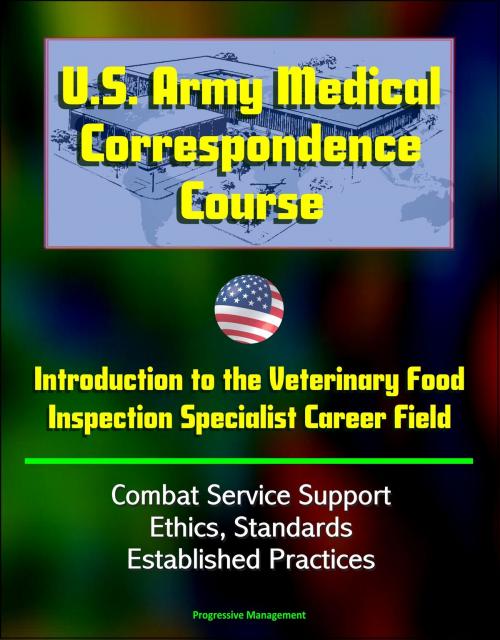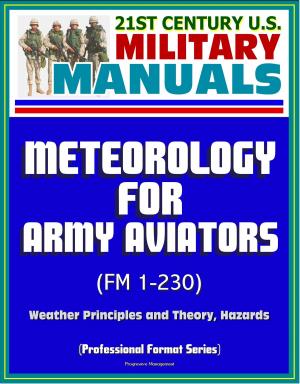U.S. Army Medical Correspondence Course: Introduction to the Veterinary Food Inspection Specialist Career Field - Combat Service Support, Ethics, Standards, Established Practices
Nonfiction, Health & Well Being, Medical, Veterinary Medicine| Author: | Progressive Management | ISBN: | 9781310684425 |
| Publisher: | Progressive Management | Publication: | October 15, 2014 |
| Imprint: | Smashwords Edition | Language: | English |
| Author: | Progressive Management |
| ISBN: | 9781310684425 |
| Publisher: | Progressive Management |
| Publication: | October 15, 2014 |
| Imprint: | Smashwords Edition |
| Language: | English |
As a veterinary food inspection specialist, you need an introduction to the context in which you will be working. The purpose of this subcourse is to provide some general knowledge that may be referred to in subsequent subcourses. There are lessons concerning the Veterinary Service as a whole, a look at the 91 Romeo career field and designated responsibilities in a field situation, and the importance of ethical standards.
This subcourse is approved for resident and correspondence course instruction. It reflects the current thought of the Academy of Health Sciences and conforms to printed Department of the Army doctrine as closely as currently possible.
INTRODUCTION * LESSON 1 - ORGANIZATION AND MISSION OF THE ARMY VETERINARY SERVICE * Exercises * LESSON 2 - OVERVIEW OF THE 91R CAREER FIELD * Exercises * LESSON 3 - COMBAT SERVICE SUPPORT * Exercises * LESSON 4 - ETHICS, STANDARDS, AND ESTABLISHED PRACTICES * Section I. General * Section II. On the Job Standards of Conduct * Section III. Personal Standards of Conduct * Section IV. Established Practices for Military Personnel * Section V. MOS Related Standards of Conduct * Section VI. Reporting Suspected Violations of Law * Exercises
After a minimum of one year of experience on the job, the veterinary food inspection specialist becomes eligible for additional training in his specialty. General training is available to both active and Reserve Components (RC) personnel. Supervisors and commanders encourage all personnel to take advantage of training opportunities. Specialized training is available only to personnel who need the training for a specialized assignment.
As a veterinary food inspection specialist, you need an introduction to the context in which you will be working. The purpose of this subcourse is to provide some general knowledge that may be referred to in subsequent subcourses. There are lessons concerning the Veterinary Service as a whole, a look at the 91 Romeo career field and designated responsibilities in a field situation, and the importance of ethical standards.
This subcourse is approved for resident and correspondence course instruction. It reflects the current thought of the Academy of Health Sciences and conforms to printed Department of the Army doctrine as closely as currently possible.
INTRODUCTION * LESSON 1 - ORGANIZATION AND MISSION OF THE ARMY VETERINARY SERVICE * Exercises * LESSON 2 - OVERVIEW OF THE 91R CAREER FIELD * Exercises * LESSON 3 - COMBAT SERVICE SUPPORT * Exercises * LESSON 4 - ETHICS, STANDARDS, AND ESTABLISHED PRACTICES * Section I. General * Section II. On the Job Standards of Conduct * Section III. Personal Standards of Conduct * Section IV. Established Practices for Military Personnel * Section V. MOS Related Standards of Conduct * Section VI. Reporting Suspected Violations of Law * Exercises
After a minimum of one year of experience on the job, the veterinary food inspection specialist becomes eligible for additional training in his specialty. General training is available to both active and Reserve Components (RC) personnel. Supervisors and commanders encourage all personnel to take advantage of training opportunities. Specialized training is available only to personnel who need the training for a specialized assignment.















